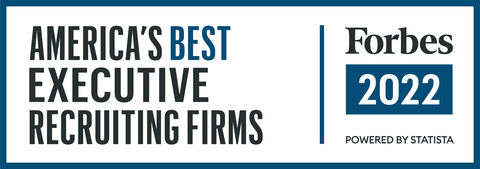Talent will get you in the door, but
character will keep you in the room.
Fashion Brands Team Up To Spearhead Campaign Around Wage Transparency
Kaleigh Moore Contributor Retail

It’s no secret that fashion retailers have a poor reputation for paying their supply chain workers fair, livable wages.
An example like the now-bankrupt Forever 21 comes to mind: The Los Angeles Times reported in 2017 that the fast fashion company was paying its U.S.-based factory workers $6 an hour (well below minimum wage) and provided subpar working conditions.
Unfortunately, not much has changed within the industry since then. The Clean Clothes Campaign found that of 20 global fashion brands surveyed on fair wages in 2019, only one could produce evidence of improvement.
Researchers at the University of Sheffield also found that despite retailers’ positive public-facing messaging around fair pay, the status quo still appears to be protecting margins by paying low wages to those working on the production side of operations.Today In: Business
“Membership of relatively low-stringency external initiatives is allowing corporations to use the rhetoric of living wages in ways that could improve perceptions of their social sustainability and labor practices, while allowing the reality of low-wage work to persist on the ground,” the researchers wrote.
The 2019 Fashion Transparency Index echoes these findings as well. Their data showed that less than 20% of the 200 brands they reviewed share their approaches to paying livable wages to supply chain workers, and only 8% report progress toward that goal on an annual basis.
The good news is: There are companies who are spearheading fair wage efforts—and they’re calling other fashion retailers to do the same.
Lifestyle brand ABLE and footwear and accessory company Nisolo, for example, recently teamed up to push for greater transparency by asking fellow retailers to publish the lowest wages they pay their international manufacturing partners.
Together, the two brands are working to encourage the fashion industry as a whole to establish a transparent baseline, which will help illustrate the truth about wages to show how far the industry has to go until all workers receive a living wage.
“We teamed up with Nisolo and are launching the Lowest Wage Challenge together because we both believe this must be a consumer movement supported by truly transparent brands,” said Barrett Ward, founder and CEO of ABLE.
Ward went on to say that the effort of publishing international wages is also about education and helping consumers connect the dots for themselves, so they can make data-informed purchasing decisions when it comes to ethical labor practices.
ABLE started publishing its lowest wages in 2018, and today, the lowest paid wage at their Nashville-based fulfillment center is $14.00 per hour, which is far above both the national minimum wage of $7.25 per hour and the $11.24 per hour Nashville Living Wage (which is calculated by the MIT Living Wage calculator).
To publish their report and findings around livable wages, ABLE uses independent nonprofit Accountable, a social impact assessment platform that ensures worker protection while giving customers a transparent look at the good and bad that exists within factories.
Accountable’s assessments evaluate wages, equality, and safety when calculating a manufacturer’s score. ABLE currently has a score of 90.6%, according to its latest report.
“Aside from publishing our lowest wages, our reporting also shares the strengths and shortcomings in our manufacturing,” Ward said. “We want our consumers on this journey of improvement with us, and we believe the industry has to embrace that you don’t have to be perfect before you’re honest with consumers.”
Starting today, November 5th, ABLE and Nisolo are bringing this initiative to consumers, too. The Lowest Wage Challenge will encourage shoppers to challenge other brands to share their lowest wages using the hashtag #LowestWageChallenge across social channels.
Nisolo’s founder and CEO Patrick Woodyard feels the conversation around wage transparency needs to be simplified, which is the goal of the Lowest Wage Challenge. He explained that this will help protect not only the most vulnerable workers, but consumers as well.
“The fashion industry is plagued with major brands claiming it’s too complex to ensure fair and livable wages in their supply chains, or even worse, there’s a fair amount of greenwashing and exaggeration,” he said.
Woodyard and Ward both feel that consumer demand for greater transparency is what’s truly going to drive change within the industry—so it’s up to shoppers to do their part and ask the brands they buy from to participate in the conversation around fair pay across the supply chain.



